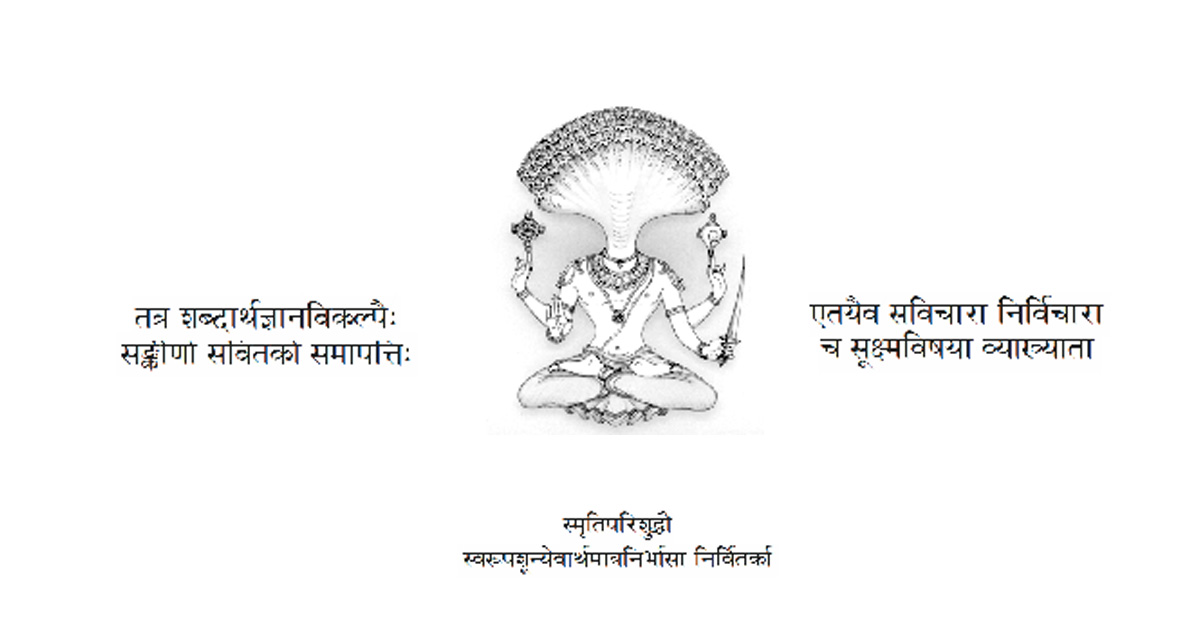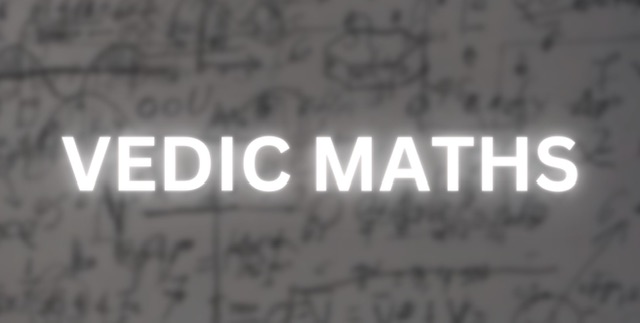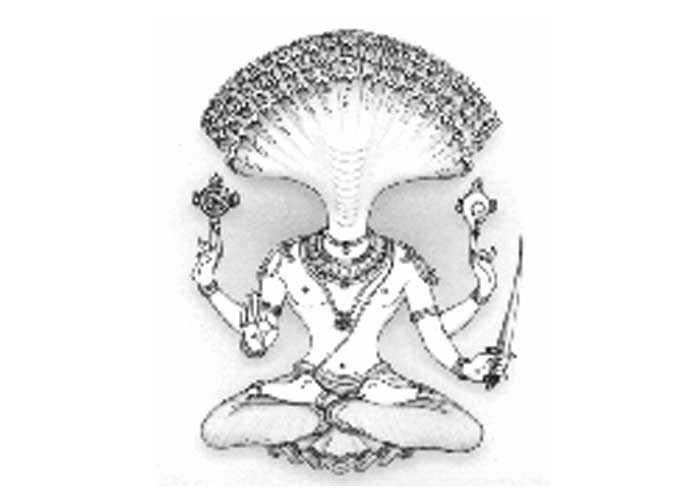42 -Patanjali now details the various levels at which the gyan reveals itself to a practitioner,
Tatra shabdaarthgyaanvikalpaih sankeerna savitark samapattih
Tatra: There (in those)
Shabd: Word
Artha: Meaning
Gyan: Knowledge
Vikalpaih: Theoretical concepts
Sankeerna: Mixed with
Savitark: Based on logic, reason, intellect
Samapattih: Culmination, assume original form
When the experience is mixed with words, meanings and prior knowledge of the subject, such a realisation is called savitark samapattih.
Yog is a subject of experience and in this sense, an individualistic subject. The secrets of Creation unfold in front of the practitioner as per his/her individual consciousness. In the initial stages, a sadhak tends to put meanings to sounds and interprets experiences intellectually based on previously acquired information or knowledge. This is called as savitark samapattih by Patanjali.
For example, if there is a table in front of you, its shape, form, texture, colour, smell, size, weight etc. are all directly experienced by you, but you identify that experience as that of a ‘table’, that which is used to keep things or work on, based on prior knowledge. Or if someone takes the name ‘table’, the interpretation of it as something to keep things or as platform with four legs, is an exercise of attaching meaning to words.
43 Patanjali continues to detail the levels at which one experiences,,
Smritiparishuddhau svaroopshunyivaarthmatranirbhasa nirvitarka
Smriti: Memory
Parishuddhau: Cleansed, cleared
Svaroop: Actual form, its form
Shunya: Shunya
Iva: Like
Arth-matra: Essence only
Nirbhasa: To shine
Nirvitarka: Without logic/reason
When the memory becomes clear, the subject assumes a shunya-like form and just the true essence shines, realisation of which is untarnished by logic or reason, it is nirvitark, indicative of opening of the bondages or connections in the physical world. Once this happens naturally – only then the higher dimensions are revealed.
The intellect or buddhi is termed as one of the biggest impediments on the path of yog. As the memory and logical mind comes into play, the experience gets limited by the intellect of the practitioner. Yog is the process of stilling the modifications of mind, memory of past experiences is one such modification. Once the mind and related memories are stilled, reality of Creation dawns on a being.
44 Patanjali continues to detail the levels at which one experiences,
Etaiva savicharnirvicharcha sukshmavishayavyakhyata
Etaiva: Like this, similarly
Savichar: With thoughts
Nirvichar: Thoughtless
Cha: And
Sukshma: Subtle
Vishaya: Subjects
Vyakhyata: Lecturer, giver of gyan
Just like these (savitarka and nirvitarka), savichar and nirvichar correspond to the levels of realisation of subtle subjects.
The subjects may be subtle or gross (physical). While in case of gross subjects, the experience gets mixed with logic and reason and past experiences, in case of subtle experiences it gets mixed with the thought pattern of the practitioner, such an experience coloured with the thoughts of practitioner is called savichar. When a sadhak is able to still his thoughts, the shunya-like form of the subtle subject reveals itself in its true essence, this is called nirvichar. Indications of stilling of your thoughts are -your eyeballs are still they don’t move and you are not attached to anything which is physical, emotions and relations included.





